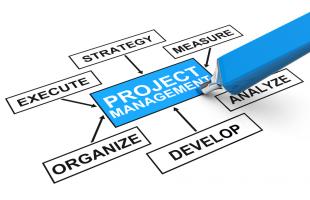In 1980, there were no female senior executives in the top 100 businesses in America. In 1994, there were no female CEOs of Fortune 500 companies (Pew). By 2015, women held 14% of the top five leadership positions in Fortune 500 companies (CNN). In 2016, there were 21 female CEOs, or roughly 4% of the overall (Fortune). This is, most certainly, progress. It can be tempting to view such advances for women in the workplace with satisfaction and even complacency. ... [more]
Millennials continue to be the buzzword around the workplace as employers try to understand their needs, attitudes, and expectations. They are consistently analyzed, scrutinized, and under the microscope. Known for short employment life cycles, need for instant gratification, and entitlement, they are perceived as lacking work ethic. Every day, 10,000 baby boomers turn 65, leaving the workforce at a rapid rate. Millennials are the next generation of leaders, let’s get them ready. ... [more]
A year ago if you were to ask if I see any commonalities between social media and elearning I would respond with, “absolutely not - they’re total opposites.” Initially, when most people think of elearning they envision education, compliance courses and maybe a quick way to learn a new computer skill. On the other hand, social media is used for connecting with family and friends, posting photos and making status updates. Despite these obvious differences, elearning and social media have a lot in common and can benefit from one another. ... [more]
The 2016 summer learning playlist is finally here! Summer is a great time to start those projects and plans that you’ve been meaning to start but have put off all year. It is also a perfect time to try and/or learn something new and different. Today I want to offer you a playlist of elearning courses that could help you feel productive this summer and give you some fresh new knowledge. Each course was handpicked based on quality, easiness to understand, and usefulness. ... [more]
We live in a world full of never-ending distraction. Our phones and tablets are constantly lighting up with information, and our various social media accounts do not cease to notify us throughout the day. These frequent instances of distraction often sidetrack us from the important tasks we must tackle, often leaving us unorganized. ... [more]
This week, we’re continuing our series of posts featuring leadership training and expertise from Frank Lee. We already featured Frank’s training on the Three Fundamental Stages of Leadership, but this week we’ll discuss the difference between leadership and management. ... [more]
Chances are, if you’re a professional in today’s social media-driven world, you have a LinkedIn profile. According to LinkedIn, their professional social network now includes 380,000,000 registered users--and it’s growing. With 118 million users in the U.S. and 39 million students and recent college graduates joining the site, it’s worth pausing to consider a simple change that can make you stand out in the crowded world of LinkedIn: writing a stand-out summary. ... [more]
Project management is critical to reaching your project goals. By effectively managing and planning ahead, you can save time, money, and resources. Successful project management ensures that you will accomplish what you intended and your objectives will be reached efficiently. To maintain your Project Management Institute certification and track career development, the association requires continuing education by earning Professional Development Units. OpenSesame currently offers over 350 courses to help you earn these PDUs and advance your project management career! ... [more]
Frank Lee shares some of his thoughts on leadership and management training. ... [more]
What does critical thinking mean to you? If you think back to your undergraduate philosophy or humanities course, perhaps you recall being encouraged to apply critical thinking to interrogating texts and ideas with open-mindedness, logic, and reason. Though the term can encompass a multitude of definitions, practicing critical thinking involves observation, interpretation, analysis, and inference. But critical thinking doesn’t just happen in the classroom. Have you ever considered how your critical thinking skills can serve you in the workplace? Or, how you can train your employees in critical thinking and problem solving? ... [more]








